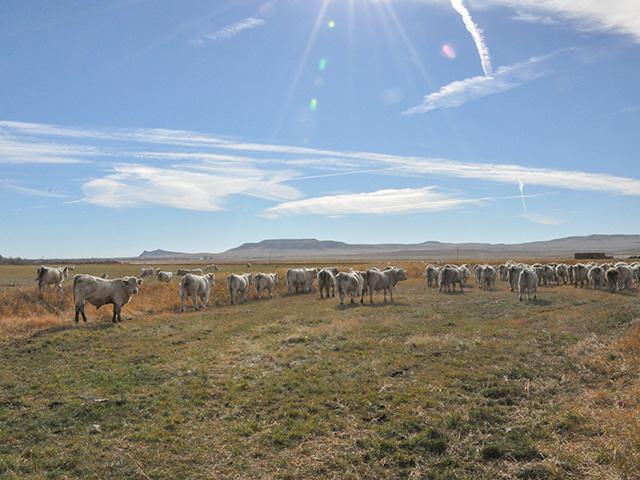Interior Proposes New Public Lands Rule
Western Cattle Grazers Could Face Leasing Competition to Conserve Ground
OMAHA (DTN) -- Livestock producers who graze on federal lands in Western states could find themselves competing with leases to idle ground under a sweeping proposed rule announced by the Biden administration.
The U.S. Department of the Interior's Bureau of Land Management (BLM) released an overhaul to change how the agency oversees 245 million of acres of federal land that would allow 10-year conservation leases, similar to leases for grazing, timber harvest, mining, energy production and other uses. The "Public Lands Rule" also would "assess the health of public lands," applying standards to examine watersheds, forests and wildlife habitat.
"As the nation continues to face unprecedented drought, increasing wildfires and the declining health of our landscapes, our public lands are under growing pressure," Interior Secretary Deb Haaland said in a statement. "It is our responsibility to use the best tools available to restore wildlife habitat, plan for smart development, and conserve the most important places for the benefit of the generations to come."
The proposed rule will be officially published Monday in the Federal Register, launching a 75-day public comment period.
The National Cattlemen's Beef Association and its affiliated group, the Public Lands Council, stated the proposed rule "would completely upend BLM's multiple-use mandates and jeopardizes the agency's ability to be a good partner to ranchers who manage millions of acres across the West."
Kaitlynn Glover, executive director for the Public Lands Council, said of the proposed rule, "Ranchers have a reasonable expectation of transparency and predictability with dealing with the BLM, and this proposed rule falls short on both accounts. The covert manner in which the rule was developed and announced has left permittees feeling like the rule is either a capitulation to the extremist environmental groups who want to eradicate grazing from the landscape, or a concerted effort to develop rules that preclude ranchers' input."
P[L1] D[0x0] M[300x250] OOP[F] ADUNIT[] T[]
Glover added BLM "will have to answer some serious questions" about the agency's multiple-use mandate over the public comment period.
According to BLM, the agency manages 155 million acres of livestock grazing, mostly cattle and sheep, through 18,000 permits and leases.
BLM's move drew praise from some environmental and wildlife groups that cited the proposal modernizes the agency's work. Defenders of Wildlife pointed to the volume of endangered species located mainly on BLM land.
"This is an invaluable opportunity for the BLM to rebalance its priorities and safeguard habitats for wildlife that are trending toward extinction, so that they not only exist but thrive in the future," said Vera Smith, senior federal lands policy analyst with Defenders of Wildlife.
The Department of the Interior points to authority under the Federal Land Policy and Management Act, the 1976 law that created the multiple-use designations to allow the department to offer conservation leases.
The rule cites that public lands "are increasingly degraded and fragmented," and are under growing threats from climate change, invasive species, drought and wildfires. All of that makes it more difficult to produce a "sustainable yield of renewable resources."
Interior officials said Thursday that companies and states have been requesting conservation leases to offset the impacts of development such as solar projects or drilling on federal lands. Conservation leases, which would run for 10 years, could be used to sequester carbon or offset emissions by preserving forest land, for instance. Conservation groups could also buy leases and conduct habitat restoration.
The rule will also establish specific lands as "areas of critical environmental concern," (ACECs). These areas would receive special designations to set priority for conservation or land restoration due to agency concerns about their degradation or habitat for endangered species.
The rule comes as the House of Representatives passed a bill Thursday on a largely partisan split, the "Lowering Energy Costs Act," HR 1 that would make it easier for energy companies to lease federal land and receive permits for oil and natural-gas extraction, as well as mining. Republicans in the floor debate criticized the Biden administration for delaying oil and gas drilling permits and trying to idle federal ground.
Also see "ESA Saga of the Lesser Prairie Chicken" here: https://www.dtnpf.com/….
Chris Clayton can be reached at Chris.Clayton@dtn.com
Follow him on Twitter @ChrisClaytonDTN
(c) Copyright 2023 DTN, LLC. All rights reserved.






